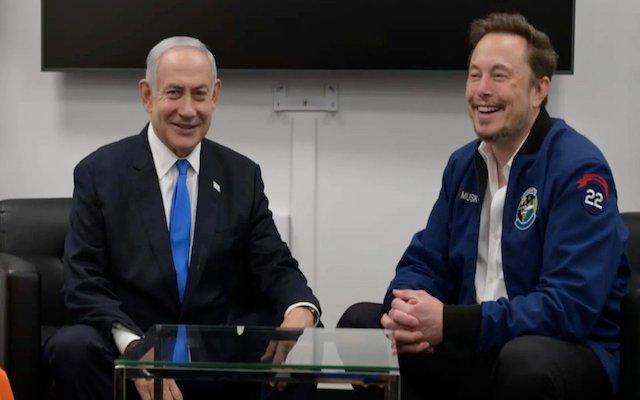Israel has reached a tentative agreement with entrepreneur Elon Musk, ensuring that his Starlink satellite internet services will not operate in Gaza without Israel's consent. Shlomo Karhi, Israel's Communications Minister, emphasized the importance of this arrangement, asserting that it is essential for building a world devoid of evil and anti-Semitism.
This development follows Musk's earlier statement in October, where he mentioned Starlink's intention to assist communication in Gaza with recognized international aid organizations. This announcement led Karhi to express Israel's strong opposition to the initiative, citing concerns over the potential misuse of the technology by HAMAS for terrorist activities. Karhi even suggested linking the operation of Starlink in the region with the release of Israelis allegedly held captive in Gaza.
🚨 BREAKING: Elon Musk and Israeli Ministry of Communications Reach Agreement on Starlink Operations
— Mario Nawfal (@MarioNawfal) November 27, 2023
- Starlink satellite units can now operate in Israel, including Gaza, with approval from the Israeli Ministry of Communications.
- The agreement is deemed vital for Israel in… pic.twitter.com/m9IboKMvUh
Responding to Musk's comments about bringing Internet to Gaza, Israel's communication minister Shlomo Karhi had then said Israel "will use all means at its disposal to fight this."
"HAMAS will use it for terrorist activities," Karhi wrote. "Perhaps Musk would be willing to condition it with the release of our abducted babies, sons, daughters, elderly people. All of them! By then, my office will cut any ties with starlink."
Israeli Communications Minister Shlomo Kahri announces an agreement with Elon Musk, upon his arrival in Israel, on the operation of Starlink satellite units in Israel and the Gaza Strip. Kahri says the agreement is awaiting final approval in Israel (@N12News).
— Israel War Room (@IsraelWarRoom) November 27, 2023
Starlink, a venture of SpaceX, aims to provide internet access to remote areas, but Israel's recent military actions in Gaza, which included the destruction of communication infrastructure, underline the complexities of such technological deployments in conflict zones.
Today, Musk is slated to meet Israeli President Isaac Herzog. The meeting, set against the backdrop of Musk's recent involvement in controversies related to anti-Semitic content on social media, is expected to address the massacre of October 7 and the growing concerns over anti-Semitism online. Plans for Musk's visit to Israel were first reported by Israel's TV Channel 12. Spokespeople for Tesla, SpaceX and X did not immediately respond to requests for comment.
Elon Musk, I congratulate you for reaching a principle understanding with the Ministry of Communications under my leadership.
— 🇮🇱שלמה קרעי - Shlomo Karhi (@shlomo_karhi) November 27, 2023
As a result of this significant agreement, Starlink satellite units can only be operated in Israel with the approval of the Israeli Ministry of…
Musk, who recently acquired Twitter and rebranded it, has faced criticism from civil rights groups for allegedly permitting anti-Semitic content on the platform. His acquisition was part of an effort to create a more equitable moderation system, promoting free speech while barring calls for violence and graphic content. Nonetheless, dissenting views, even those offensive to some, are generally permitted.
This visit coincides with a brief ceasefire between Israel and Hamas in Gaza. Previously, Musk met with former Israeli Prime Minister Benjamin Netanyahu in California, where discussions on combating hate speech on social media were held.


